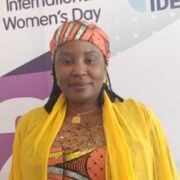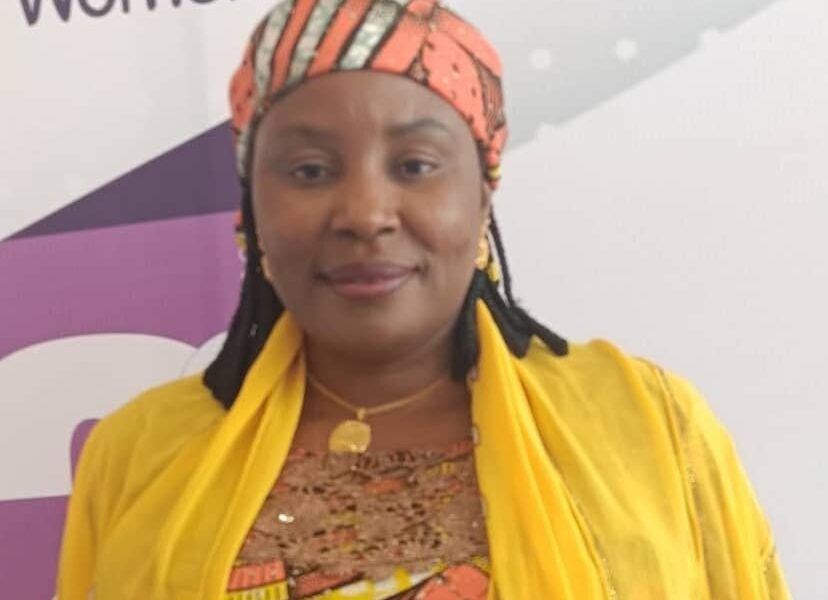Key Achievements:
Championed Women in Leadership: 30% representation in Plateau government.
Advanced Policy Reforms: Local adoption of national/international laws.
Advocated WEE Policy: Plateau among 6 states implementing it.
Enforced VAPP Law: Zero tolerance for GBV; full survivor support.
Promoted Maternal Health: Awareness + free pregnancy kits for safe deliveries.
Increased Child Protection: Combated trafficking, child labor; pushed for education.
Empowered Women: 100+ widows trained; young women skilled in business.
The Commissioner for Women Affairs and Social Development in Plateau State, Hon. Caroline Panglang Dafur’S work in shaping the social dynamics and historic inequalities has not only reshaped the narrative around women’s involvement in governance but has also led reforms addressing gender-based violence, significant economic empowerment, maternal health, and child protection.
Appointed nearly two years ago, Panglang stepped into her role with a clear mission: to uplift women, empower communities, and ensure no one is left behind. Her tenure has coincided with an unprecedented surge in female political participation, championed by the progressive leadership of Governor Barrister Caleb Manasseh Mutfwang.
A New Dawn for Women in Governance
“Before the current administration, women were largely marginalized,” Pangla notes. “Today, Plateau State proudly boasts 30% female representation across various sectors of government—a figure we’ve never achieved before.” Among these are the State Accountant General, the Commissioner of Finance, and four other cabinet members, alongside seven women serving as Deputy Chairpersons across the local governments.
Panglang is confident that this momentum will lead to the Plateau achieving the national target of 35% affirmative action by the end of the current administration.
Empowerment Through Action
Under her leadership, over 100 widows were empowered in the past year with skill acquisition programs and starter packs to rebuild their lives. “We also train young women in financial literacy and entrepreneurship. It’s about giving them tools, not just promises,” she emphasizes.
Her ministry is at the forefront of implementing the Women Economic Empowerment (WEE) Policy, placing Plateau among the pioneering six states in Nigeria to adopt the initiative. The government has also approved counterpart funding for the Nigerian for Women Project—another significant milestone that will drive economic inclusion for women in underserved communities.
Tackling Gender-Based Violence Head-On
One of the most compelling stories from Pangla’s office is that of Hawa—a domestic violence survivor whose harrowing experience captured national attention after her husband amputated her hand while she was pregnant.
“Our administration covered all her medical expenses, ensured her children’s school fees were paid, and helped establish a business for her. Her husband is currently serving time in prison, and we continue to support her recovery,” Pangla says with resolute compassion.
Through aggressive sensitization campaigns across all 17 local government areas, her ministry has ensured the implementation of the Violence Against Persons Prohibition (VAPP) law and significantly reduced incidents of gender-based violence. Survivors are provided with psychosocial therapy, education, and reintegration support.
Expanding Access to Care
Despite the availability of primary health care centers across the state, many women still shy away from hospitals due to cultural beliefs and economic barriers. Pangla’s strategy includes targeted awareness campaigns and distribution of pregnancy kits to encourage hospital deliveries.
“It’s not just about having the facilities; it’s about ensuring women understand the importance of using them—and removing any barriers they face in doing so.”
Fighting Child Trafficking and Exploitation
A relentless crusader against child exploitation, Pangla has led the charge in combating domestic trafficking and underage labor.
“We’re not condemning domestic help in itself,” she clarifies. “But when you take a 12-year-old out of school and put her in a home as a servant, that’s exploitation. We’re saying, ‘Let’s do better.’”
Her office continues to advocate for policies that protect children’s rights while ensuring proper documentation, wages, and education for those engaged in domestic work above the legal age.
A Vision for Policy Reform and Ownership
Pangla’s policy push includes the domestication of national laws like the WEE policy and active participation in frameworks like the Maputo Protocol.
“I’ve learned that it’s not enough to adopt laws—we must own them. That’s what I’m doing with the Plateau version of the WEE policy. It must reflect our reality and serve our women effectively,” she asserts.
Legacy in the Making
As she reflects on her journey so far, Pangla is clear about the legacy she hopes to leave. “Whenever children are in trouble—be it trafficking, abuse, or neglect—my office is there. We’ve dramatically reduced these cases, and that’s something I’m very proud of.”
Her Final Word
“To Plateau and Nigerian women: let’s be united, let’s speak with one voice, and let’s support each other. Only then will the world take us seriously,” she urged.


